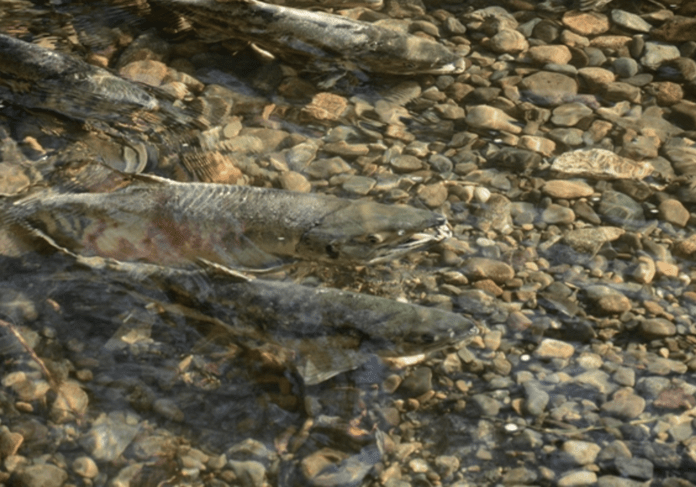UNESCO is a specialized agency of the United Nations, who work to address global issues that will impact future generations.
It was announced in Victoria on Wednesday, February 21st, that the global organization has its eyes on British Columbia—specifically, the importance of the wild Pacific salmon populations that are at-risk of dwindling.
Salmon are crucial to BC’s ecosystems as well as the province’s Indigenous population’s cultural and spiritual practices.
They are also tied directly to many jobs, people’s incomes, recreation and the tourism industry.
Not to mention they are the primary diet of BC’s iconic Southern Resident orca population who are endangered, with only an estimated 75 individuals left, dispersed among three pods.
For Pacific salmon, the most crucial part of their life cycle is when they swim from oceanic waters into freshwater estuaries to spawn.
The Government of Canada and the BC government announced on Wednesday that they will all be working together to revitalize the salmon population by improving conditions for these estuaries that are being impacted by human activity and climate change.
“Understanding the impacts of sea-level rise and other effects of climate change on coastal estuaries is vital to improving the health of wild fish stocks in BC,” said Diane Lebouthillier, Minister of Fisheries, Oceans and the Canadian Coast Guard.
“The Nature Trust of British Columbia’s important work to monitor, assess and restore this crucial habitat for Pacific salmon, in collaboration with First Nations partners is central to our goal of protecting the Pacific salmon population. This endorsement by UNESCO shows that we are on the right track towards achieving our goal of healthy ecosystems and fish stocks in BC.”
Members of UNESCO were on hand to endorse the project as an official contribution to the UN Decade of Ocean Science for Sustainable Development 2021-2030.
The British Columbia Salmon Restoration and Innovation Fund (BCSRIF) embarked on a five-year project to improve the resilience of these estuaries, with $8,432,473 in funding from the Fisheries and Oceans Canada (DFO) since 2019.
This funding has gone towards restoration biologists, engineers, and other experts contributing to several restoration projects along the coast, with guidance from First Nations partners in every region.
Their restoration efforts are primarily aimed at supporting fish, wildlife and Indigenous food systems.
On Vancouver Island, two main areas of focus have been the Snuneymuxw (Nanaimo) River and the Cowichan River estuaries.
All of this work falls directly in line with UNESCO’s goal of providing “the science we need for the ocean we want.”
“To be endorsed and to have our project attached to the Cultural Heritage Framework Programme demonstrates how impactful a project can be that engages meaningfully with indigenous communities to facilitate co-design, develop capacity, enable greater diversity and showcase the integration of science and cultural knowledge and heritage,” said Tom Reid, West Coast Conservation Land Manager, Nature Trust of British Columbia.
“This recognition is a reflection of all of our partners’ commitment throughout the coast of British Columbia to working together in a meaningful and collaborative way to ensure these ecosystems are resilient into the future, not only to support fish and wildlife but also the coastal communities that rely upon them.”
While this UNESCO endorsement announcement was being made in Victoria, the Province also revealed the relinquishment of the Canadian Pacific’s last offshore oil and gas permits.
All levels of government see this as a step in the right direction toward better stewardship and conservation of the Pacific salmon’s natural habitats.
The UNESCO endorsement brings along with it credibility and recognition for the salmon revitalization efforts.



